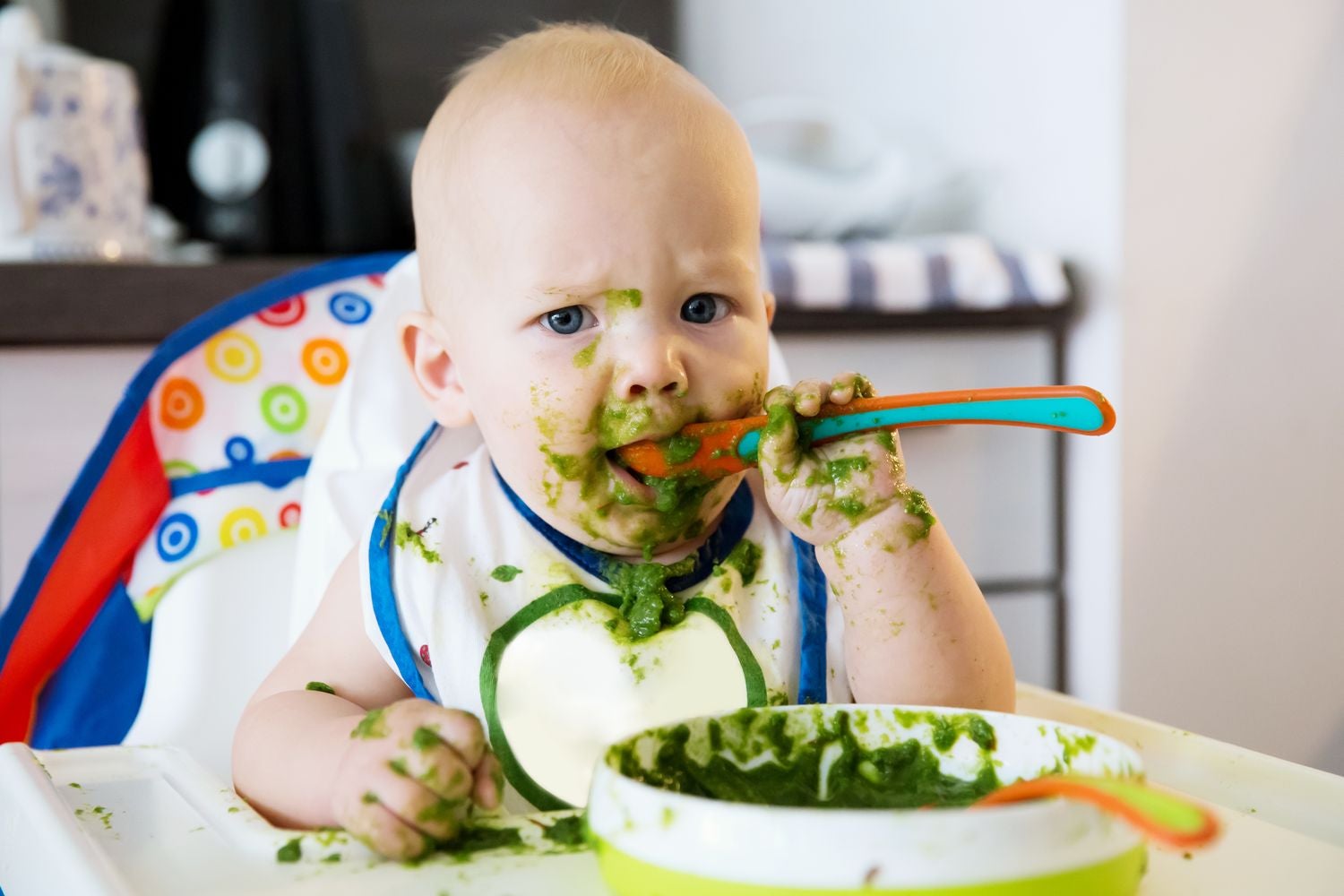Current New Zealand advice is that infants should be introduced to solids at around 6 months of age. Mums should continue to breastfeed during and after the introduction of solid foods, until the infant is at least one year of age, or beyond.
It is important to remember, all babies are different and will develop at their own pace and the range of normal progression varies greatly. Just like the age at which a baby walks has no indication of their athletic ability in later life, the speed at which they are ready for solids won’t dictate their development later in life either. The age of your baby is only one indication that your baby will be ready for solid food, there are a number of other visible cues to look out for.
Cues that your baby is ready for solids may include any of the following:
- Your baby showing an interest in food, including what’s on your plate – babies might also start putting their fingers in their mouths.
- You’ve noticed an increased appetite and the want for more milk at the end of a breastfeed.
- Your baby is opening their mouth when food is offered on a spoon.
- Your baby has good head and neck control, and the ability to sit upright when supported.
If your baby is not showing these readiness signs and you are worried their appetite, growth and development are not progressing normally, it is advisable to seek advice from your doctor or dietitian.
Do not force:
This is one of the most important stages of growing up. Good nutrition will play an important role in their entire life so it is important to start them on the right track from the beginning and let it happen at a natural pace.
Starting solids too early:
- A baby does not need these foods yet and they may displace breast milk. Less breast milk means less growth and protective nutrients;
- May increase the risk of diarrhoea and other gastrointestinal infections;
Starting solids too late:
- The baby doesn’t get enough food needed to fulfil their increasing needs;
- It might affect their growth and development;
- The chances of malnutrition and micronutrient deficiencies increase – particularly for iron and zinc;
- Skills such as chewing may be delayed;
- You may miss the window where they are willing to try new tastes and textures.
Developmental stages of eating:
There is much more to starting solids than simply being ready to chew and swallow foods.
Your baby will progress through many stages of eating development.
These stages may include tolerating a range of foods and meals with different:
- Textures – rough, slimy, crunchy, fibrous
- Tastes – bitter, sour, salty, sweet, savoury
- Consistencies – runny, thick, chunky
- Smells – stronger and milder smells
- Temperatures – warm, cold, icy
- Appearances – all food looks foreign to children to begin with, just as when we visit a different country with foreign food, it’s normal for children to be a little apprehensive at first
When eating development goes smoothly you may not even notice these changes happening. If you are concerned about how their introduction to solids is progressing, notice which developments they are lacking and work on that skill.
Even easy feeding babies can refuse foods at times for various reasons, just knowing food introductions is supposed to be a learning curve for both baby and parent can put some parents at ease.
It is considered normal for babies to learn to walk between 8-20 months with many tumbles and falls along the way. Learning to eat a variety of foods is much the same, and it will take time to master.


